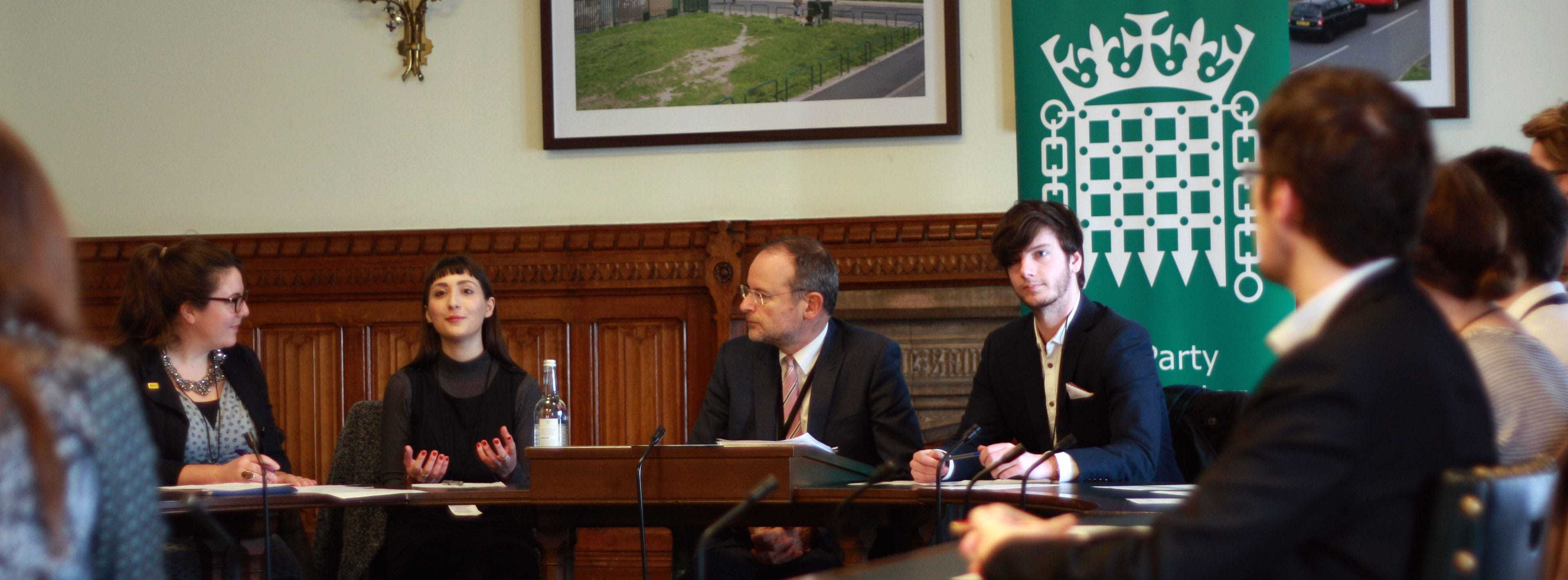On Tuesday 23rd February, during Student Volunteering Week, I had the privilege of being invited to speak about my experience as a student volunteer at an All Party Parliamentary Group on Students event in the House of Commons.
As the student Schools Plus Coordinator for Bristol Hub and Student Hubs nationally, I spoke alongside Richard Brooks, the Vice President of Union Development at NUS, and Kerri Hall, the Education Manager at Step Up to Serve. Paul Blomfield MP, the chair of the event, also welcomed representatives from various political parties, student unions, mental health charities and student volunteer organisations.
The purpose of the event was to reflect on the positive impact student volunteers have on their communities and to explore some of the barriers preventing students from engaging in volunteering on a short or long-term basis.
The event began with three opening statements from myself, Richard and Kerri respectively. As the opening speaker I was really keen to talk about the positive relationships that volunteering encourages between students and their communities; engaging in volunteering makes me feel like I am a resident in Bristol, not just a student studying at Bristol University.
I talked about the significance of that distinction, emphasising that for many students university is perceived as a transient experience, which in turn often unconsciously encourages a detachment between students and the communities that surround them at university. And yet from my experience, I have seen first hand how the relatively brief presence students have at university can have a profound impact.
In my opinion, this is because underlying the success of student volunteering is the idea of passing the baton on: it’s about getting involved, sharing your experience and inspiring the next person to continue the great work that you’ve started. In doing so, students are able to cultivate sustainable relationships with their communities.
As the Coordinator of Schools Plus in Bristol, I’ve been able to see for myself some of the barriers that prevent students from engaging in volunteering. During our two recruitment periods, the project receives an overwhelmingly positive response from students who wish to get involved, but simple barriers such as timetable constraints, heavy job related/ academic workloads and a reluctance to commit to a long-term project prevent them from participating. It was therefore really interesting to hear Richard elaborate on these problems and to have our attention drawn to some of the funding issues that student volunteering organisations face.
Above all, though, the issue that I think most needs addressing, which Richard raised, is the lack of diversity in the type of volunteering opportunities available to students. I think this issue is also intrinsically linked to the increasingly concerning privileging of ‘what the student gets out of volunteering’ whenever we have a discussion about student volunteering.
I believe that volunteering is voluntary; it is above all else a selfless act. The emphasis should therefore not be on what this voluntary work can do for me, but rather what this voluntary work can do for my community. If we can provide more one-off voluntary experiences for students who might not be able to commit to intense long-term projects, I believe that this will change current attitudes towards volunteering and people will see volunteering for what it really is: not simply an addition to the CV, but an invaluable contribution to the society in which we live.

